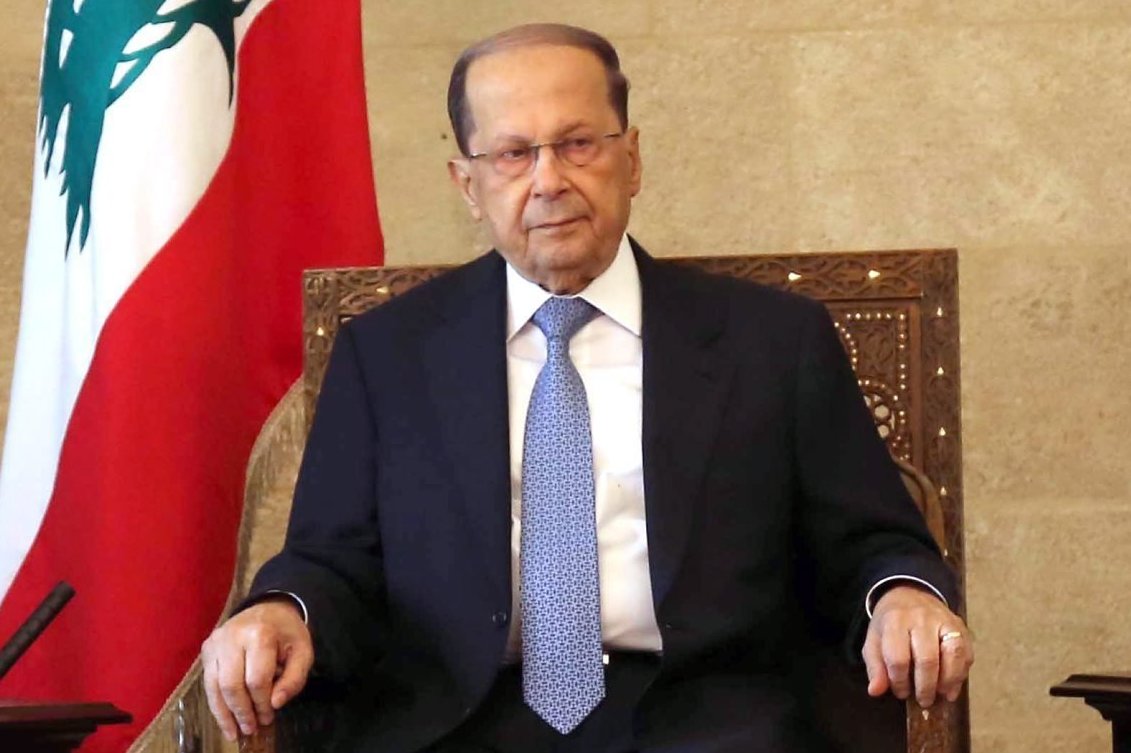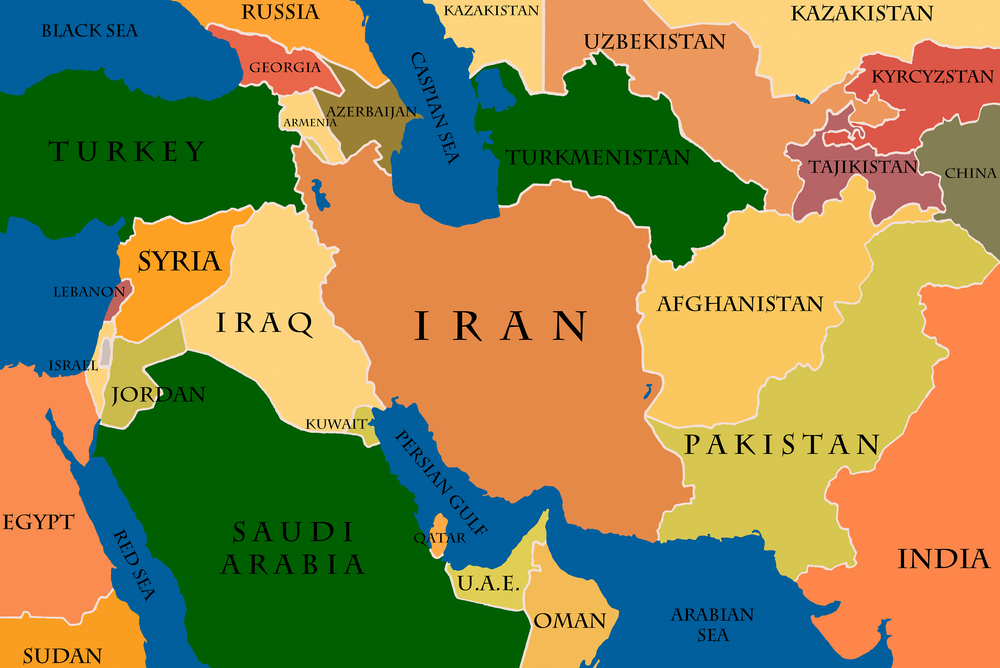Tuesday’s World News #1 – Lebanon
Tuesday's World Events — Posted on November 7, 2017
NOTE: We have separated the three Tuesday’s World News articles into separate posts, with one in place of today’s Daily News Article.
NOTE: Lebanon’s government by custom allocates public offices along religious lines, with the top three positions distributed as follows:
- The President, a Maronite Christian.
- The Speaker of the Parliament, a Shi’a Muslim.
- The Prime Minister, a Sunni Muslim.
(Compiled from reports from BBC News and by Angus McDowall ay Reuters, Nov. 4) – Lebanese Prime Minister Saad al-Hariri (a Sunni Muslim) resigned on Saturday, saying in a televised broadcast from Saudi Arabia that he feared for his life, while also fiercely criticizing Iran.
He accused Iran of sowing “fear and destruction” in several countries, including Lebanon.
Mr. Hariri’s father, former Prime Minister Rafik al-Hariri, was assassinated in a 2005 Beirut bomb attack that pushed his son into politics and set off years of turmoil. A U.N.-backed tribunal has charged five Hezbollah members over the killing. (The Iranian and Syrian governments are also believed to be involved in Hariri’s assassination.)
Mr. Hariri has been prime minister since December 2016, after previously holding the position between 2009 and 2011.
“We are living in a climate similar to the atmosphere that prevailed before the assassination of [my father] martyr Rafik al-Hariri,” he said in the broadcast from the Saudi capital Riyadh.
“I have sensed what is being plotted covertly to target my life.”
The Saudi-owned pan-Arab television channel al-Arabiya al-Hadath reported that an assassination plot against Hariri was foiled in Beirut days ago, citing an unnamed source.
Saudi Arabia’s Gulf Affairs Minister Thamer al-Sabhan said in a television interview that Hariri’s personal security detail had “confirmed information” of a plot to kill him.
Mr. Hariri also attacked the Iran-backed Shia movement Hezbollah, which wields considerable power in Lebanon.
Addressing “Iran and its followers” he said Lebanon would “cut off the hands that wickedly extend into it.”
Iran said the resignation would create regional tensions and rejected Mr Hariri’s accusations as “unfounded.”
It was not immediately clear who might succeed Hariri, Lebanon’s most influential Sunni politician. The prime minister must be a Sunni in Lebanon’s sectarian system. President Aoun must appoint the candidate with most support among MPs, who he is expected to consult in the coming days.
Hariri’s coalition, which took office last year, grouped nearly all of Lebanon’s main parties, including Hezbollah. It took office in a political deal that made Michel Aoun, a Maronite Christian and Hezbollah ally, president, and was seen as a victory for Iran.

Lebanese President Michel Aounm, a Hezbollah ally, in October 2016. (Photo: Wael Hamzeh/European Pressphoto Agency) With Mr. Hariri’s resignation, Mr. Aoun will now be required to call on parliament to nominate a new prime minister.
The resignation risks exacerbating sectarian tensions between Sunni and Shi‘ite Muslims and returning Lebanon to paralysis in government.
Sunni Muslim Saudi Arabia, a political ally of Hariri, is locked in a bitter tussle for power across the Middle East with Shi‘ite Iran and its allies, including Hezbollah.
Hariri said Hezbollah and Iran had brought Lebanon into the “eye of a storm” of international sanctions. Iran was sowing strife, destruction and ruin wherever it went and he accused it of a “deep hatred for the Arab nation.”
Background
EXPLANATION OF SUNNI AND SHI’A (Shi’ite) MUSLIMS
- Just as there are many denominations of Christianity (such as Catholic or Protestant) and Judaism (such as Orthodox, Conservative or Reform) there are a number of denominations of Islam.
- The major denominations of Islam are Sunni and Shi’a.
- Sunni and Shi’a have significant theological differences from each other, but possess the same essential belief in Allah and the Koran.
- Sunnis make up the majority of Muslims worldwide (80%- 85% of all Muslims are Sunni).
- The Shia are a minority, comprising between 10 percent and 15 percent of the world’s 1.3 billion Muslim population – certainly fewer than 200 million, all told.
- The Shia are concentrated in Iran, southern Iraq and southern Lebanon. But there are significant Shiite communities in Saudi Arabia and Syria, Afghanistan, Pakistan and India as well.
- Shi’as are in the majority in Iraq (approximately 60-65% of Iraq’s population are Shi’a). Although the minority in Iraq, Sunni Arabs enjoyed favor under Saddam’s rule. (read more at wikipedia)
HEZBOLLAH:
Hezbollah, whose name means “party of God,” is a terrorist group believed responsible for nearly 200 attacks since 1982 that have killed more than 800 people. It was founded in 1982 in Lebanon’s Bekaa Valley by a Shia clergyman educated in Iran. Hezbollah’s stated objectives include:
- the establishment of a Shiite theocracy in Lebanon
- the destruction of Israel
- the elimination of Western influences from the Middle East.
Hezbollah is an umbrella organization of various radical Islamic Shi’ite groups and organizations which receives substantial financial and philosophical support from Iran. Hezballah is supported by Syria and is financed by Iran. On the U.S. State Department’s list of terrorist organizations, Hezballah reportedly possesses an estimated 10,000 rockets capable of reaching major Israeli population centers.
In 2006, Hezbollah fighters raided an Israeli border post and kidnapped two soldiers. This touched off a war between Israel and Hezbollah that lasted a month until the Israeli and Lebanese governments agreed to a cease-fire under a United Nations Security Council deal, resolution 1701.
A stunning resignation (by Martin Patience, BBC News, Beirut, Nov. 4, 2017)
- The prime minister's resignation has opened up a chasm of uncertainty in Lebanon.
- It's still not clear why he announced his decision in Saudi Arabia - an extraordinary move that left even his own MPs bewildered.
- But the move will be seen through the lens of the great Shia-Sunni divide that's fueling much of the violence across the Middle East.
- It's pitted the Sunni power, Saudi Arabia, against the Shia power, Iran - with both sides backing different players to wield influence.
- ...With this stunning resignation, many Lebanese will now fear that their country is firmly in the crosshairs of the two regional superpowers.

